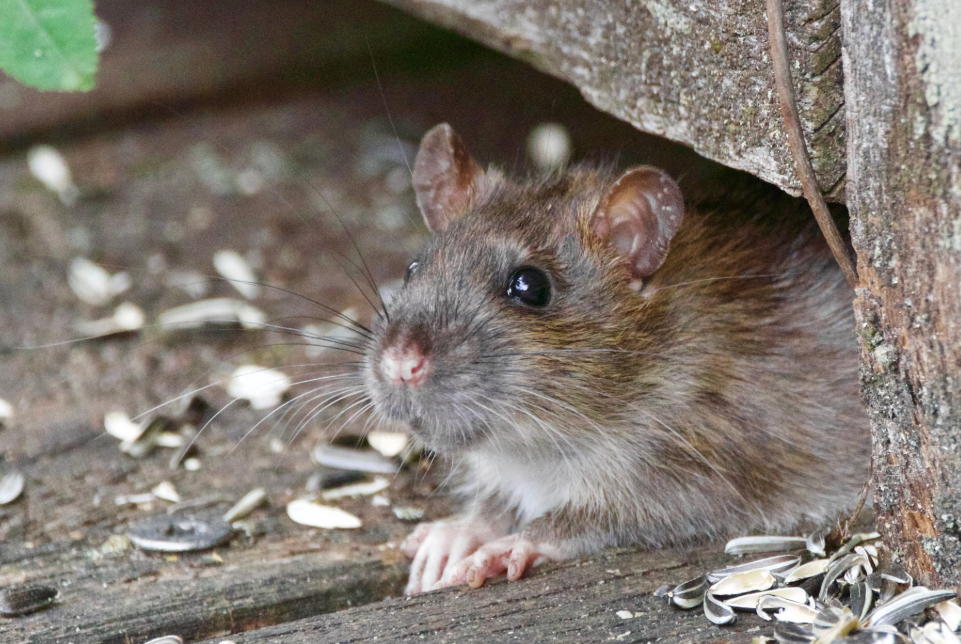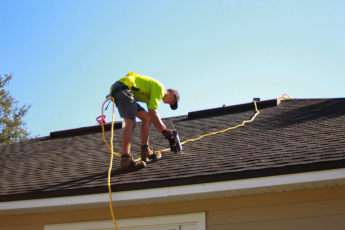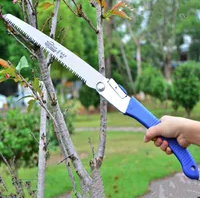How Can I Prevent Rodents from Entering My Home During Winter?

As winter approaches, the challenge of keeping rodents out of homes becomes increasingly urgent for many homeowners!

Cold weather drives rodents like rats and mice indoors in search of warmth, food, and shelter. This seasonal invasion not only threatens the comfort of your home but also poses significant risks to your health and property. Rodents can damage wiring, contaminate food supplies, and spread diseases, making rodent control in Sydney an essential aspect of winter home maintenance.
This comprehensive guide will walk you through effective, expert-recommended strategies to prevent rodents from entering your home during the colder months. It also addresses common questions about rodent behaviour in winter and practical steps homeowners can take to secure their properties. Whether you live in a suburban neighbourhood or a busy urban centre, these tips will help protect your home throughout the winter season.
Why Are Rodents More Active Around Homes in Winter?
Rodents are naturally adapted to seek out environments that support their survival. When winter arrives, the temperature drop forces them to abandon outdoor nests and look for warmer places. Houses offer several advantages: a consistent temperature, an abundance of food sources, and protection from predators. This makes residential properties prime targets during the colder months.
The quest for food and shelter intensifies in winter because natural resources outside become scarce. Seeds, insects, and other food items that rodents rely on diminish as temperatures fall and ground surfaces freeze. As a result, rodents turn their attention to human homes, where pantry items, pet food, and accessible garbage cans provide easy meals. Understanding this seasonal shift in behaviour helps in planning rodent control Sydney measures to reduce the likelihood of an infestation.
Common Entry Points Rodents Use to Access Homes
Rodents are skilled at exploiting even the smallest openings to gain entry into buildings. It’s important to understand that these pests can squeeze through gaps as small as 6-7mm, roughly the size of a pencil eraser. Common entry points around a home include cracks in the foundation, gaps around plumbing pipes, spaces under doors, damaged window screens, and vents that are not properly sealed.
Many older homes have structural weaknesses such as loose bricks, deteriorated mortar, or damaged weather stripping that rodents can easily exploit. Additionally, holes around utility lines or electrical conduits are common access routes. Knowing these vulnerable spots allows homeowners to prioritise their pest control Bondi efforts and secure these points before rodents find their way inside.
How to Effectively Seal Your Home Against Rodents
A critical step in preventing rodents from entering your home during winter is to methodically seal all potential entry points. Begin with a thorough inspection of your home’s exterior, including the foundation, walls, doors, windows, vents, and roofline. Look for any cracks, holes, or gaps and take immediate action to repair them.
Small holes and cracks can be sealed with materials like steel wool, combined with caulking or expanding foam. Steel wool is particularly effective because rodents cannot chew through it easily. For larger gaps, metal flashing or hardware cloth mesh can provide a durable barrier. Don’t forget to check areas around plumbing pipes and cables where gaps often go unnoticed.
Ensure that doors and windows close tightly and use weather stripping to seal gaps under doors. For attic vents and chimneys, install screens made of durable metal mesh to keep rodents out while maintaining airflow. A well-sealed home drastically reduces the chances of rodents finding a way inside, making this a cornerstone of any pest control Sydney plan.
Maintaining a Clean Home to Deter Rodents
Rodents are primarily motivated by the search for food, so reducing their access to edible materials is essential. Maintaining a high standard of cleanliness inside your home can discourage rodents from settling. Store all food, including pet food, in sealed, airtight containers made of glass or thick plastic.
Avoid leaving food out overnight, and clean kitchen surfaces and floors regularly to remove crumbs or spills. Garbage bins should be tightly sealed and emptied frequently to prevent odours that attract rodents. In addition, clutter provides excellent hiding and nesting places for rodents, so keeping storage areas like basements, garages, and pantries organised and clutter-free is important.
Regular cleaning not only removes food sources but also makes it easier to spot early signs of rodents, such as droppings or gnaw marks, allowing you to take action before an infestation worsens. These simple yet effective habits complement professional pest control Bondi services for comprehensive rodent prevention.
Managing the Outdoor Environment to Prevent Rodent Access
Your outdoor environment plays a significant role in rodent prevention. Rodents often live and breed in gardens, woodpiles, sheds, and dense vegetation, which provide shelter and nesting materials. To minimise the risk of rodents approaching your home, it’s important to keep the immediate perimeter well-maintained.
Trim back overgrown bushes, shrubs, and tree branches that touch or hang over your house. These can act as bridges for rodents to enter upper levels. Store firewood, lumber, and other materials at least 30cm above the ground and away from the house to prevent rodents from nesting nearby.
Compost bins and garden waste should be managed carefully to avoid attracting rodents. Consider using enclosed composters and regularly turning the compost to reduce odour and warmth that might draw pests. Maintaining a tidy yard reduces available shelter and food for rodents, thereby supporting your rodent control Sydney efforts.
Using Rodent Deterrents and Trapping Solutions
Sometimes, despite the best preventative efforts, rodents manage to find their way inside. In these cases, using traps and deterrents can help control the problem before it escalates. Snap traps placed along walls, behind appliances, or near suspected entry points can effectively reduce rodent numbers if checked and reset regularly.
Ultrasonic rodent repellents emit high-frequency sounds that are unpleasant to rodents, although their effectiveness varies and is often temporary. Natural deterrents such as peppermint oil soaked in cotton balls placed near potential entry points or nesting areas can help discourage rodents from settling inside.
It is important to note that traps and deterrents should be used in combination with sealing entry points and cleaning practices for a comprehensive approach to pest control, Bondi and rodent control Sydney.
Why Professional Rodent Control Is Essential During Winter
While DIY prevention and control methods can be helpful, professional pest control services bring expertise, specialised equipment, and treatments that significantly increase the chances of successfully eliminating rodent problems. Pest control professionals conduct detailed inspections that can reveal hidden entry points and nesting sites that homeowners might miss.
Licensed pest controllers use proven rodenticides and baiting techniques that are safe for people and pets but highly effective against rodents. Additionally, professionals provide ongoing monitoring and maintenance plans to ensure rodents don’t return season after season. In areas with high rodent activity, such as urban centres in Sydney or Bondi, engaging professional help is often the most reliable way to protect your home throughout winter.
Early Signs of Rodent Infestation to Watch For
Detecting rodents early is key to preventing extensive damage and health risks. Be alert for signs such as droppings, which are small and dark, often found near food storage or along walls. Gnaw marks on wood, wires, plastic, and food packaging indicate rodent activity.
Listen for scratching or scampering noises inside walls, ceilings, or under floors, especially at night when rodents are most active. Nests made from shredded paper, fabric, or insulation materials are another indicator. A musty, ammonia-like odour may also signal the presence of rodents.
By recognising these warning signs promptly, homeowners can take immediate action, either through DIY methods or by calling professional rodent control Sydney experts before the infestation grows.
Long-Term Rodent Prevention Strategies
Rodent prevention is not just a seasonal effort but a continuous process. After sealing entry points, cleaning, and managing your outdoor space, maintaining vigilance is necessary. Regular home inspections, especially before and after winter, help identify any new vulnerabilities.
Implementing routine cleaning schedules, especially in kitchens and storage areas, will keep rodent attractants at bay. Consider ongoing contracts with pest control professionals for inspections and treatments as needed, especially in high-risk urban areas where rodent populations can be dense.
Investing time and resources in these long-term prevention strategies will save money and stress by avoiding costly repairs, health issues, and recurrent infestations.
Conclusion
Preventing rodents from entering your home during winter requires a multi-layered approach. Sealing entry points, maintaining cleanliness, managing outdoor environments, and using traps or deterrents all play important roles in effective rodent control Sydney and pest control Bondi.
Proactive measures combined with professional support can keep your home safe from the damage, health risks, and discomfort that rodents bring. By acting early and consistently, you can enjoy a pest-free home throughout the cold season and beyond. Taking control now means fewer worries later.
Frequently Asked Questions About Preventing Rodents in Winter
What attracts rodents to homes during winter?
Rodents are primarily attracted by the warmth and food availability inside homes during colder months. As outdoor food sources dwindle and temperatures drop, houses provide a comfortable, safe environment.
How small a gap can rodents enter through?
Rodents, particularly mice, can enter through gaps as small as 6mm. This means even tiny cracks in walls or around pipes can be entry points, highlighting the need for thorough sealing.
Are natural repellents effective against rodents?
Natural repellents like peppermint oil may discourage rodents temporarily, but they are not a standalone solution. They work best when combined with sealing entry points and trapping.
Can rodents damage electrical wiring?
Yes, rodents commonly gnaw on electrical wiring, which can lead to short circuits and fire hazards. This makes early rodent control essential to protect your home and family.
When is it best to call professional pest control for rodents?
If you see signs of infestation such as droppings, nests, or hear noises and traps don’t solve the issue, professional pest control should be contacted. Experts offer comprehensive treatments tailored to your home’s needs.








